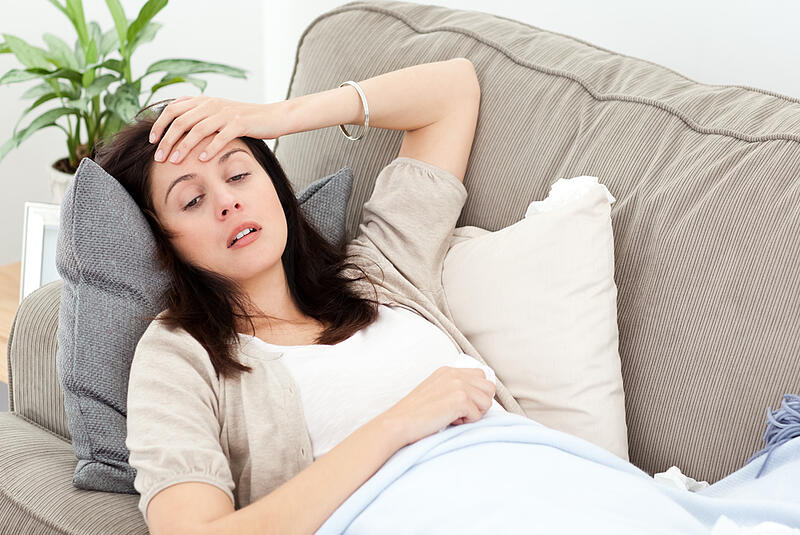
Sleep Health and Flu Shot Effectiveness
University of Chicago researchers compared the antibody levels of the sleep-deprived versus the well-rested participants. Those antibodies, which help protect you from illnesses, were significantly lower in the sleep-deprived group. In fact, 10 days post-flu shot, the sleep-deprived folks had antibody levels that were half as high as those who were rested. It took three to four weeks for the immunition to equalize for the two groups.
Another study found those who slept five hours or less were 4.5 times more likely to catch a cold than those who regularly got seven hours of shut eye.
If you do get the flu, sleep is good medicine. Washington State University researchers found a specific brain protein, called AcPb, which is associated with sleep and actually quickened recovery of lab mice infected with H1N1 flu. The trick is in how this brain protein interacts with the immune system to promote the power of sleep health.
How Many Hours to Sleep
The medical world has long advocated the restorative effects of slumber. So how much sleep do you need for a healthy immune system? It varies, but seven to eight hours is a good number for most adults. Just make sure it’s a restful sleep. Avoid alcohol and caffeine before bed, and put away screen devices which make it harder to fall asleep.
Quality Sleep Boosts Your Immunity
To stay healthy, especially during the influenza season, get the recommended seven to eight hours of sleep a night. This will help keep your immune system in fighting shape, and also protect you from other health issues including heart disease, diabetes, and obesity.
If your sleep schedule is interrupted by a busy workweek or other factors, try to make up for the lost rest with naps. Taking two naps that are no longer than 30 minutes each —one in the morning and one in the afternoon—has been shown to help decrease stress and offset the negative effects that sleep deprivation has on the immune system.
If you can’t swing a half-hour nap during the workday, try grabbing a 20-minute siesta on your lunch hour, and another right before dinner.
Can NOT Sleeping Make You Sick?
Yes, lack of sleep can affect your immune system. Studies show that people who don’t get quality sleep or enough sleep are more likely to get sick after being exposed to a virus, such as a common cold virus. Lack of sleep can also affect how fast you recover if you do get sick.
During sleep, your immune system releases proteins called cytokines, some of which help promote sleep. Certain cytokines need to increase when you have an infection or
 inflammation, or when you’re under stress.
inflammation, or when you’re under stress.Sleep deprivation may decrease production of these protective cytokines. In addition, infection-fighting antibodies and cells are reduced during periods when you don’t get enough sleep.
So, your body needs sleep to fight infectious diseases. Long-term lack of sleep also increases your risk of obesity, diabetes, and heart and blood vessel (cardiovascular) disease.
How much sleep do you need to bolster your immune system? The optimal amount of sleep for most adults is seven to eight hours of good sleep each night. Teenagers need nine to 10 hours of sleep. School-aged children may need 10 or more hours of sleep.
But more sleep isn’t always better. For adults, sleeping more than nine to 10 hours a night may result in a poor quality of sleep, such as difficulty falling or staying asleep.
Alaska Sleep Clinic is ready to help you improve your sleep and your life. Call us this week to speak with one of our board-certified sleep specialists.












